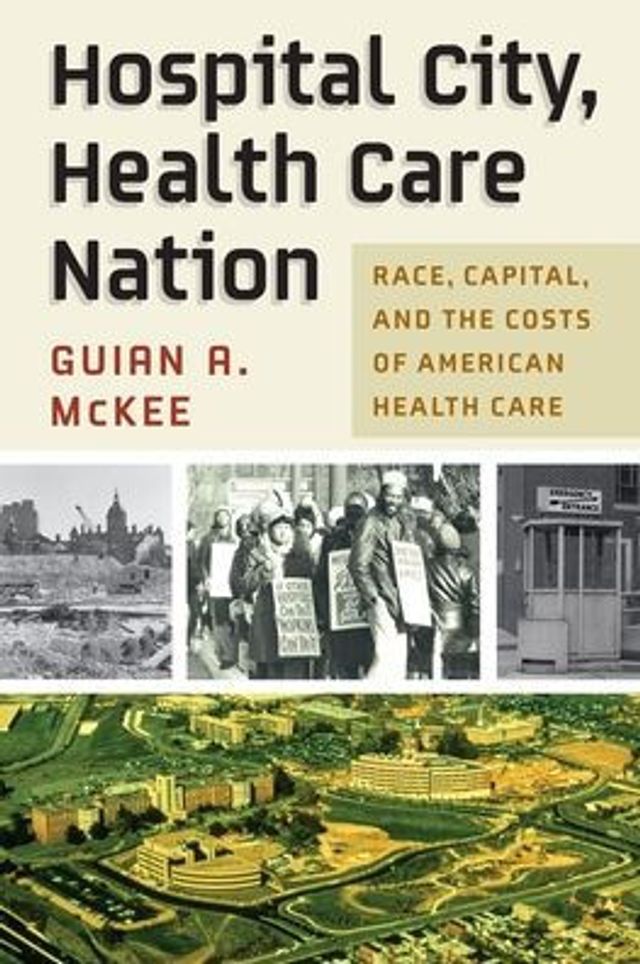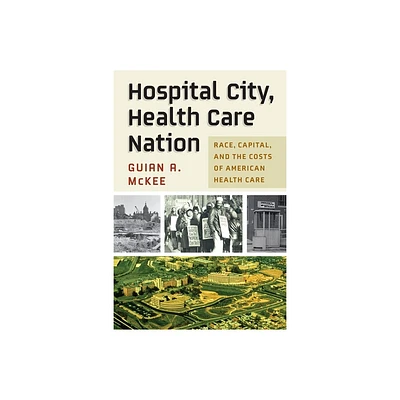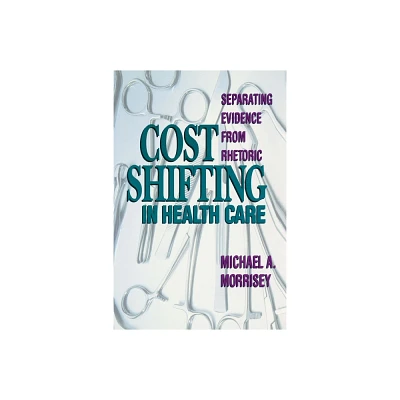Home
Hospital City, Health Care Nation: Race, Capital, and the Costs of American
Loading Inventory...
Barnes and Noble
Hospital City, Health Care Nation: Race, Capital, and the Costs of American
Current price: $45.00


Barnes and Noble
Hospital City, Health Care Nation: Race, Capital, and the Costs of American
Current price: $45.00
Loading Inventory...
Size: Hardcover
*Product Information may vary - to confirm product availability, pricing, and additional information please contact Barnes and Noble
Hospital City, Health Care Nation
recasts the story of the U.S. health care system by emphasizing its economic, social, and medical importance in American communities. Focusing on urban hospitals and academic medical centers, the book argues that the country’s high level of health care spending has allowed such institutions to become vital, if often problematic, economic anchors for communities. Yet that spending has also constrained possibilities for comprehensive health care reform over many decades, even after the passage of the Affordable Care Act in 2010. At the same time, the role of hospitals in urban renewal, in community health provision, and as employers of low-wage workers has contributed directly to racial health disparities.
Guian A. McKee explores these issues through a detailed historical case study of Baltimore’s Johns Hopkins Hospital while also tracing their connections across governmental scales—local, state, and federal. He shows that health care spending and its consequences, rather than insurance coverage alone, are core issues in the decades-long struggle over the American health care system. In particular,
points to the increased role of financial capital after the 1960s in shaping not only hospital growth but also the underlying character of these vital institutions. The book shows how hospitals’ quest for capital has interacted with structural racism and inequality to shape and constrain the U.S. health care system. Building on this reassessment of the hospital system, its politics, and its financing,
offers ideas for the next steps in health care reform.
recasts the story of the U.S. health care system by emphasizing its economic, social, and medical importance in American communities. Focusing on urban hospitals and academic medical centers, the book argues that the country’s high level of health care spending has allowed such institutions to become vital, if often problematic, economic anchors for communities. Yet that spending has also constrained possibilities for comprehensive health care reform over many decades, even after the passage of the Affordable Care Act in 2010. At the same time, the role of hospitals in urban renewal, in community health provision, and as employers of low-wage workers has contributed directly to racial health disparities.
Guian A. McKee explores these issues through a detailed historical case study of Baltimore’s Johns Hopkins Hospital while also tracing their connections across governmental scales—local, state, and federal. He shows that health care spending and its consequences, rather than insurance coverage alone, are core issues in the decades-long struggle over the American health care system. In particular,
points to the increased role of financial capital after the 1960s in shaping not only hospital growth but also the underlying character of these vital institutions. The book shows how hospitals’ quest for capital has interacted with structural racism and inequality to shape and constrain the U.S. health care system. Building on this reassessment of the hospital system, its politics, and its financing,
offers ideas for the next steps in health care reform.

















